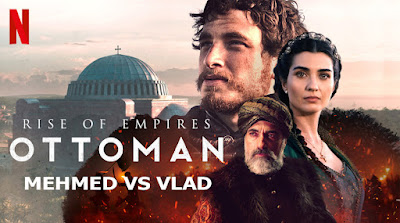Fauda (the Arabic word for chaos) Season 4 is now available in the United States, much to the delight of fans of the series – I’m one. The first three seasons* were all “must see,” and this season again is in that category. I will try to avoid spoilers in my review.
This season’s action shifts to the international stage with operational activities in Belgium, Syria, and Lebanon as well as the usual venues of Israel and the West Bank. The antagonists of this season’s operations are also international – Lebanese Hizballah.
The former chief of the IDF special operations unit, Captain Gabi Ayoub, is running an intelligence source inside Hizballah via the Mossad station in Brussels. The source reports that Hizballah is planning a large operation in Israel and the West Bank. This is unprecedented for Hizballah – normally they strike Israeli targets from their home territory in Lebanon. Operating within the Palestinian Authority is an escalation and exactly what Israel does not want – cooperation between Hizballah, Hamas, and Palestinian Islamic Jihad.
Gabi and the main character Doron – now brought back out of retirement – travel to Brussels to make contact with the asset. As with many intelligence assets, at times the case officer has to do a bit of “hand-holding” and reassuring. Suffice it to say that once the two get to Brussels, things go downhill quickly. The team follows in support.
The asset Gabi is running – Omar Tawalbe – turns out to be the brother of an Israeli Arab – a female Israeli police officer. Lucy Ayoub’s performance as Maya Binyamin (née Tawalbe) is stellar.
As I have advised in the past three seasons, pay attention to the languages being spoken. For the most part, if the characters’ voices are in English, what you are listening to is Hebrew dubbed into English. When the characters are speaking Arabic, the audio is played in Arabic and subtitled. The Arabic subtitles are an interpretation rather than a literal translation, and are generally well done.
I especially enjoyed this season’s Arabic dialog as the characters not only were speaking the Palestinian Levantine dialect, but also the Lebanese Levantine dialect, depending on the venue of the action. For the most part, the Arabic was excellent, although at times a bit of an Israeli accent was evident. This is important since the special operations team often impersonates Arabs. If you are going to do that, your accent has to be perfect.
There are letters and sounds in Hebrew that do not exist in Arabic, and vice versa. During one of my liaison tours with an Arab intelligence service, the officers explained that when they create security challenges and responses (the “password”), they always chose words that are difficult for native Hebrew speakers to vocalize correctly.
For example, Hebrew-speakers have problems with the Arabic aspirated HAH (what we Arabic linguists sometimes refer to as the “hard H”). Hebrew speakers tend to say the Arabic KHAH – Hizballah normally sounds like Khizballah, which raises a flag that the subject is not a native Arabic speaker.
I will complement one of the actors, Itzik Cohen (playing Captain Ayoub), on his vocalization of Arabic. Cohen does not speak Arabic, and is coached on his lines before each scene. It sounds native to me. In episode 1 (minute 26:45), Cohen/Ayoub breaks into an Arabic song (Habibi ya ‘ayni – My love, my eyes) at a wedding, and it is well done.
Season 4 is a definite must watch. As I have commented in the past, enjoying good fiction requires the literary concept of “suspension of disbelief.” In other words, even though you know that some of the things that happen in a book, movie, or show range from “that’s a stretch” to “that’s not possible,” you suspend your disbelief and enjoy the story.
While there was quite a bit of the suspension of disbelief required in this season, especially the scenes in Syria and Lebanon, it was never to the level that I was tempted to stop watching – in fact, I couldn’t stop watching.
_______________________
*My reviews of the previous seasons:





